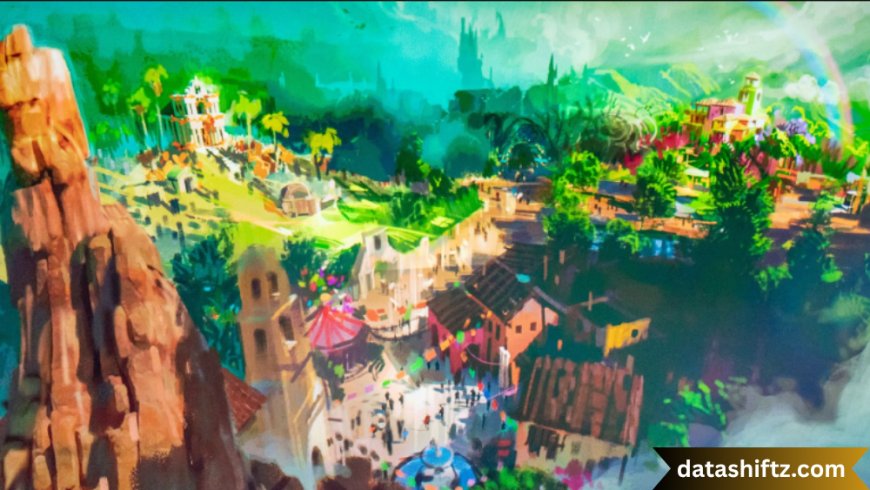BIG – A Concept Beyond Size: Exploring the Many Dimensions of “Big”

Introduction
What does it mean when we say something is “big”? While the word “big” might seem simple at first glance, it is, in fact, a multifaceted concept that extends beyond physical dimensions. From the world of business and technology to entertainment, philosophy, and human aspiration, “big” carries powerful connotations of greatness, ambition, growth, and even danger.
This article explores the various interpretations and real-world applications of the word “big.” Whether it’s big ideas, big data, big companies, big dreams, or big problems, understanding the scope and impact of “big” helps us better comprehend the world around us.
The Many Definitions of “Big”
At its core, “big” is an adjective used to describe something of large size, quantity, importance, or intensity. But its use has evolved to symbolize ambition, dominance, innovation, and transformation.
Types of “Big”:
-
Physical Size – Mountains, oceans, skyscrapers, animals.
-
Magnitude/Volume – Big data, big economies, big money.
-
Importance – A big issue, a big decision, big news.
-
Success/Status – A big celebrity, a big brand, big business.
-
Emotion/Experience – Big love, big mistake, big dreams.
Let’s delve into how “big” is used across different areas of modern life.
Big in Technology, Business, and Media
1. Big Data – The Foundation of the Digital Age
Big Data refers to massive volumes of structured and unstructured data generated every second. It's revolutionizing industries from healthcare to marketing.
Characteristics of Big Data (The 5 Vs)
| Attribute | Description |
|---|---|
| Volume | Massive amounts of data collected daily |
| Velocity | The speed at which data is generated and processed |
| Variety | Different types of data (text, video, sensors, etc.) |
| Veracity | Accuracy and reliability of data |
| Value | Usefulness of the insights derived |
2. Big Tech – Titans of the Digital World
Companies like Google, Apple, Amazon, Facebook, and Microsoft are often referred to as “Big Tech.” These companies have reshaped modern communication, shopping, work, and life.
Impacts of Big Tech:
-
Global connectivity
-
AI and machine learning integration
-
Concerns about data privacy and monopolization
3. Big Business – Corporate Giants That Rule the Economy
Big businesses dominate global markets with their vast resources, workforce, and economic power.
Top 5 “Big” Global Companies (by Market Capitalization)
-
Apple Inc.
-
Microsoft Corporation
-
Saudi Aramco
-
Alphabet Inc. (Google)
-
Amazon
These giants influence global policy, economics, supply chains, and culture.
4. Big in Entertainment – Blockbusters and Big Names
“Big” in entertainment refers to grand productions, massive budgets, and celebrities with huge followings.
-
Big-budget films: Like Marvel, Avatar, Star Wars
-
Big stars: Beyoncé, Tom Hanks, BTS
-
Big awards: Oscars, Grammys, Emmys
Big Ideas, Big Dreams, and Big Challenges
Big Ideas That Changed the World
History is filled with revolutionary ideas that were considered “too big” at first but ended up reshaping society.
Examples of Big Ideas
-
Democracy and Human Rights – A political revolution across nations.
-
Electricity – Powering the modern world.
-
Internet – Connecting billions globally.
-
Space Travel – Expanding human horizons.
-
Artificial Intelligence – Redefining work and innovation.
Each of these began as a mere thought—an abstract, “big” idea—that led to transformative change.
Big Dreams – The Driving Force Behind Progress
“Dream big” is more than a motivational slogan. It’s a philosophy embraced by innovators, leaders, and visionaries.
Examples:
-
Elon Musk dreaming of Mars colonization.
-
Malala Yousafzai advocating for girls’ education worldwide.
-
Nelson Mandela’s dream of racial equality in South Africa.
These individuals faced adversity, but their big dreams fueled action that inspired millions.
Big Problems Facing Humanity
Not everything “big” is positive. Many of the world’s most critical challenges are also immense in scale.
Global “Big” Problems
| Issue | Description | Global Impact |
|---|---|---|
| Climate Change | Rising temperatures, sea levels, extreme weather | Threatens ecosystems |
| Poverty | Billions lack access to basic needs | Affects global equity |
| Health Pandemics | COVID-19, HIV/AIDS | Economic & social toll |
| War and Conflict | Ukraine, Gaza, Sudan | Displacement, death |
| Misinformation | Fake news, deepfakes | Undermines democracy |
The Psychology of “Big”
Why are humans so attracted to “big”? Psychologists argue that we associate “bigness” with power, security, achievement, and sometimes fear.
Psychological Impacts of “Big”
-
Big Achievements create lasting self-esteem.
-
Big Mistakes can lead to anxiety and guilt.
-
Big Goals inspire motivation and effort.
-
Big Risks evoke both excitement and fear.
Understanding our response to “big” events, people, or goals can help us regulate our emotions and make better decisions.
Cultural and Linguistic Interpretations of “Big”
Different cultures interpret the concept of “big” uniquely.
Examples:
-
In the U.S., “thinking big” is encouraged—ambition is celebrated.
-
In Japan, humility is prized, and “big talk” can be frowned upon.
-
In India, “big” weddings and festivals symbolize prosperity and community.
The language itself reflects this:
-
“Big shot” – someone important
-
“Big deal” – significant occurrence
-
“Big mouth” – someone who talks too much
-
“Go big or go home” – a phrase encouraging maximum effort
Conclusion:
Why “Big” Still Matters
In a world that's constantly evolving, “big” remains a word of aspiration, caution, and power. Whether we are talking about big ideas, big challenges, big tech, or big emotions, the term symbolizes a dimension beyond just physical space—it signifies impact, consequence, and potential.
To move forward as individuals and societies, we must learn to embrace “big” responsibly. Dream big but stay grounded. Solve big problems with cooperation. Handle big data ethically. And most importantly, understand that every “big” thing often starts small.






























